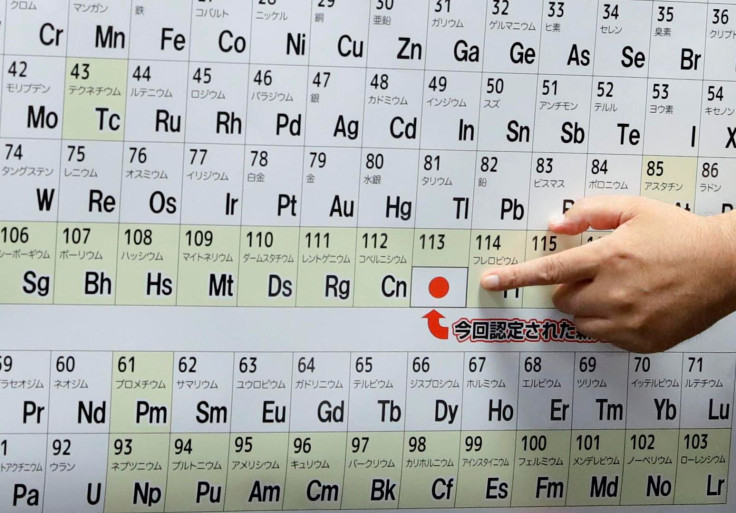Four New Super-Heavy Elements Have Now Been Officially Christened

Ununtrium, ununpentium, ununseptium, and ununoctium — these were the temporary names given to four new super-heavy elements by the International Union of Pure and Applied Chemistry (IUPAC) back in December. Now, a year later, these elements have been bestowed official names and have earned their spots in the periodic table.
Earlier this week, the IUPAC — the organization in charge of naming and categorizing elements, among other things — revealed the official names of the four elements — nihonium (Nh), moscovium (Mc), tennessine (Ts), and oganesson (Og).
The four elements, which have atomic numbers of 113, 115, 117 and 118, respectively, do not occur naturally and were created in labs. Once created, the nuclei of these super-heavy elements quickly break down into lighter ones.
The name nihonium was derived from the Japanese word "Nihon," which means Japan. This name was chosen to recognize the contribution of scientists from Japan's RIKEN Nishina Center for Accelerator-Based Science, where the element was created. Similarly, moscovium and tennessine derive their names from the city of Moscow and the U.S. state of Tennessee — both of them regions where scientists involved in their discovery hailed from.
Oganesson, meanwhile, was named for Russian scientist Yuri Oganessian, who, along with his team, discovered the heaviest of all known elements.
"The names of the new elements reflect the realities of our present time," IUPAC President Natalia Tarasova said in a statement. "Universality of science, honoring places from three continents, where the elements have been discovered — Japan, Russia, the United States — and the pivotal role of human capital in the development of science, honoring an outstanding scientist — Professor Yuri Oganessian."
Over the past five months, the teams that created the elements sent in their suggestions to the IUPAC. During this period, comments were also received from members of the general public, some of whom suggested names like octarine — the "color of magic" from Terry Pratchett's "Discworld" novels — and Trumpium, after the U.S. President-elect Donald Trump.
"Overall, it was a real pleasure to realize that so many people are interested in the naming of the new elements, including high-school students, making essays about possible names and telling how proud they were to have been able to participate in the discussions," Jan Reedijk, president of IUPAC's inorganic chemistry division, said in the statement. "It is a long process from initial discovery to the final naming, and IUPAC is thankful for the cooperation of everyone involved. For now, we can all cherish our periodic table completed down to the seventh row."
© Copyright IBTimes 2024. All rights reserved.






















